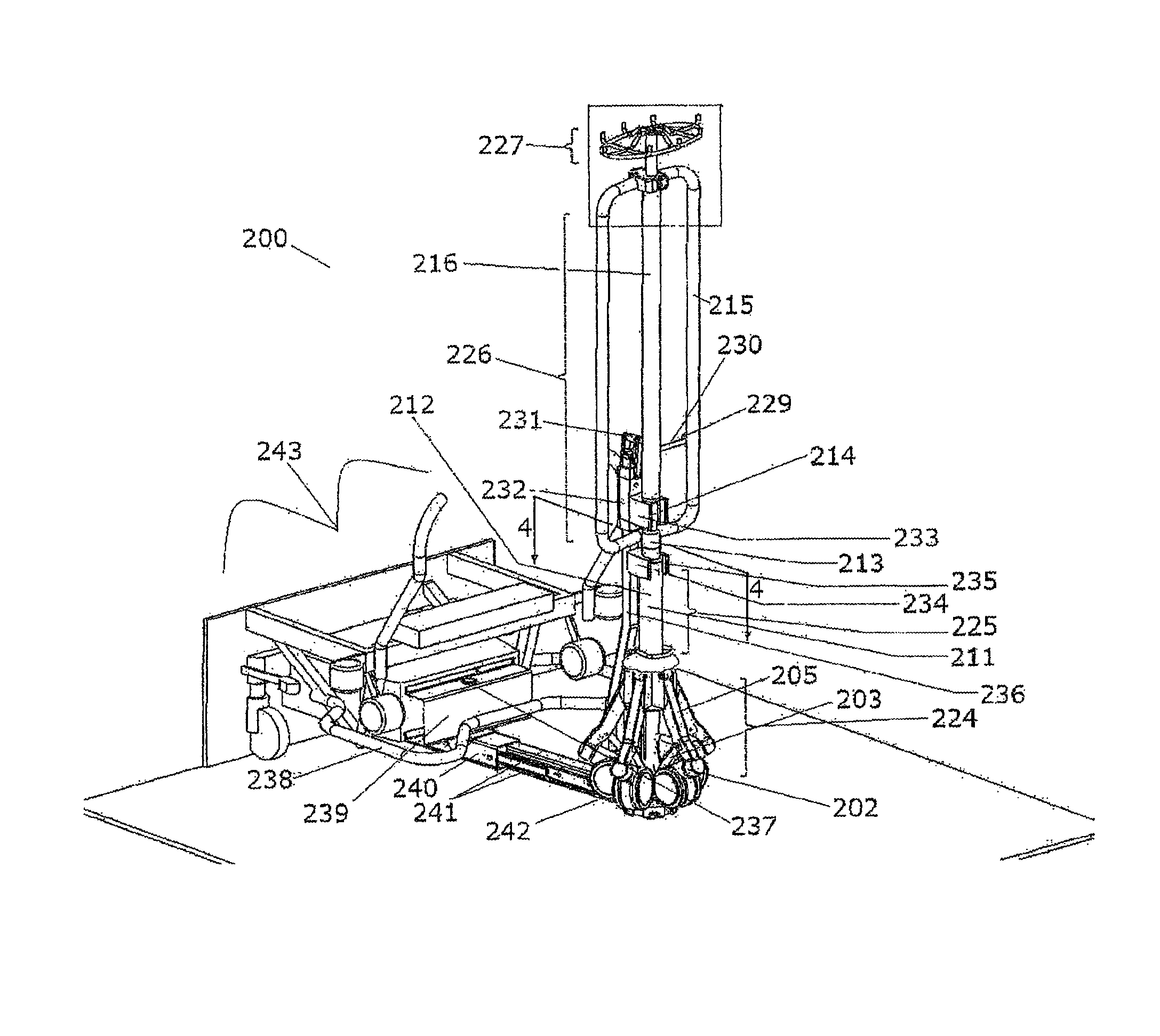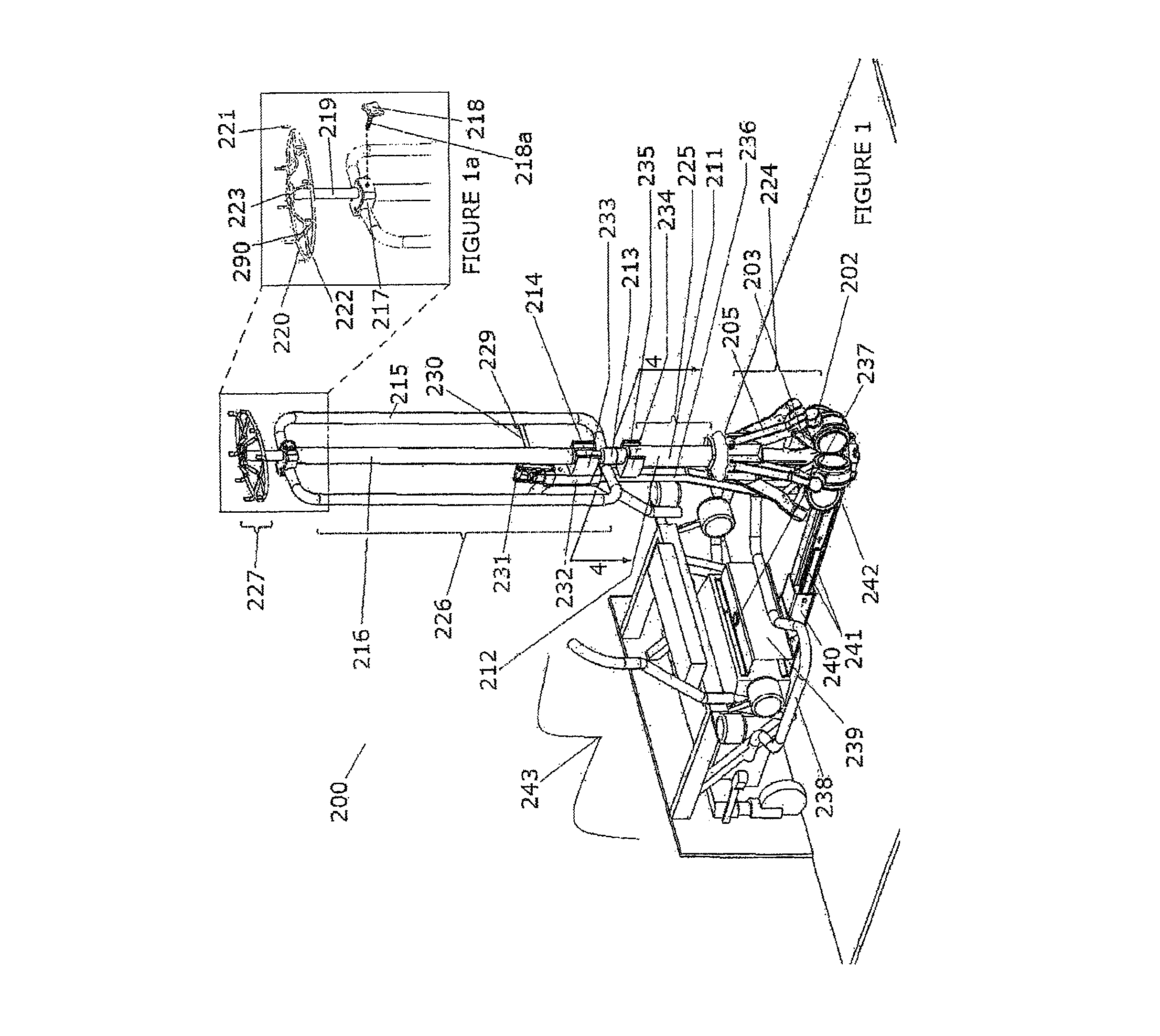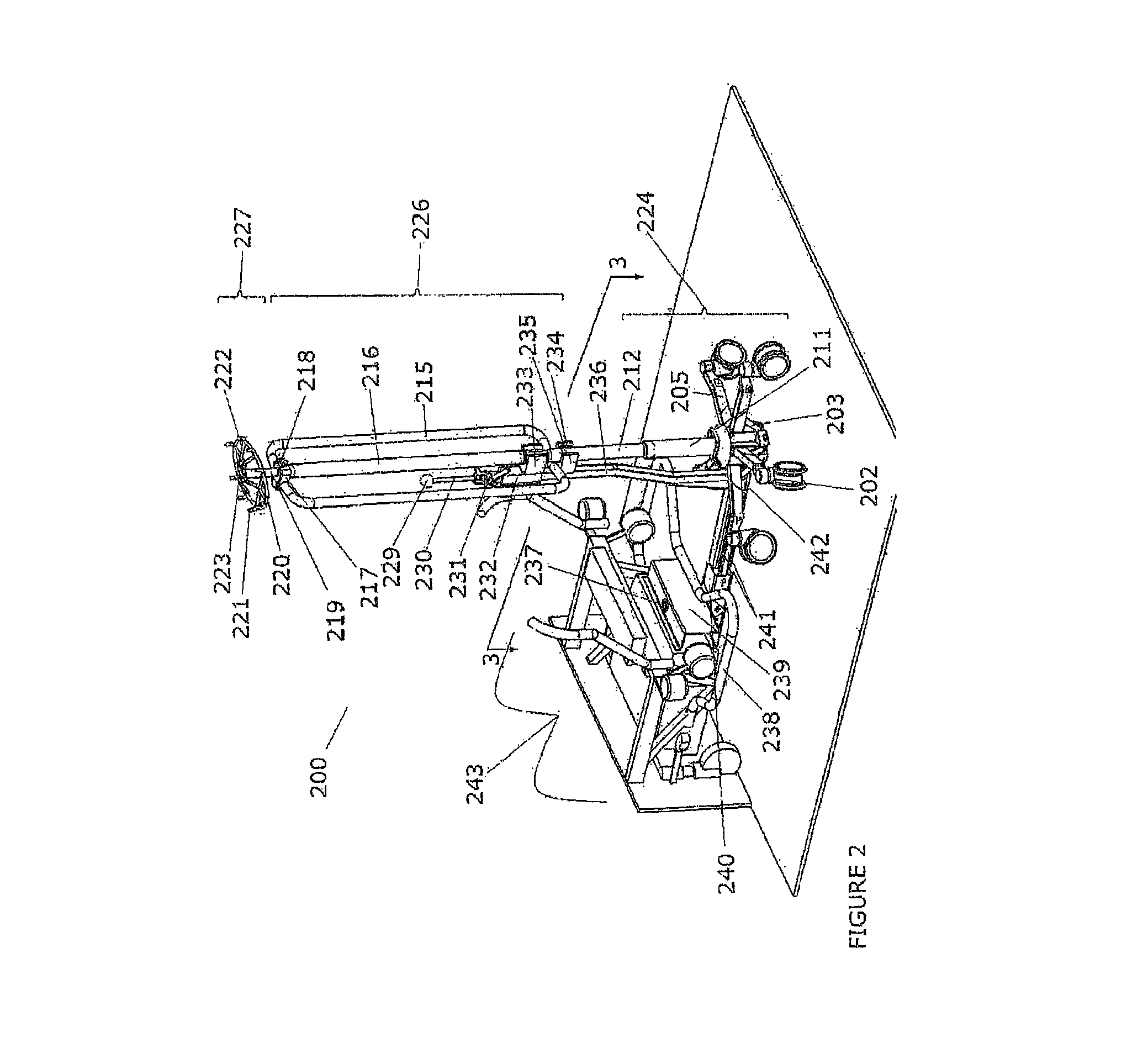Transformable intravenous pole
a technology of intravenous poles and transverse holes, which is applied in the field of intravenous poles, can solve the problems of unsatisfactory form of iv poles, impose significant burdens on hospital staff, and suffer from iv poles
- Summary
- Abstract
- Description
- Claims
- Application Information
AI Technical Summary
Benefits of technology
Problems solved by technology
Method used
Image
Examples
Embodiment Construction
[0032]A common form of patient transport device comprises a patient holding apparatus used together with a mobile IV pole. Mobile IV pole design is constrained by two contradictory physical requirements. Mobile IV poles must simultaneously have a base sufficiently wide so that the poles are stable and do not easily fall over, and which are sufficiently narrow so that the IV pole may be positioned adjacent to a patient holding apparatus such as a wheelchair, wheeled bed, stretcher, gurney, or the like. Lack of attention to either of these two design requirements may be problematic tendering the IV pole in-operable. An IV pole with a narrow base may be unstable and potentially fall over, which may either pull out an IV lead from a patient or cause other physical injury. In addition, the tipping over of an IV pole may result in the bag or pumps being positioned below the patient, resulting in poor or non-transfusion of needed fluids into the patient. Alternatively an IV pole having a b...
PUM
 Login to View More
Login to View More Abstract
Description
Claims
Application Information
 Login to View More
Login to View More - R&D
- Intellectual Property
- Life Sciences
- Materials
- Tech Scout
- Unparalleled Data Quality
- Higher Quality Content
- 60% Fewer Hallucinations
Browse by: Latest US Patents, China's latest patents, Technical Efficacy Thesaurus, Application Domain, Technology Topic, Popular Technical Reports.
© 2025 PatSnap. All rights reserved.Legal|Privacy policy|Modern Slavery Act Transparency Statement|Sitemap|About US| Contact US: help@patsnap.com



